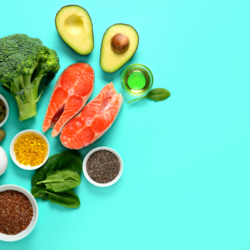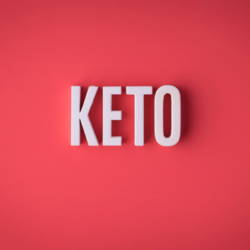It doesn’t matter whether you want to fit into your 38 for a special occasion or simply feel in better shape, losing weight is a common goal. In order to set yourself realistic goals, you’d like to know how long it takes to melt off the pounds. So we’re going to look at the factors that favour more or less rapid weight loss. Find out how long it takes to achieve a slimming goal effectively and sustainably.
How do you lose weight quickly?
Losing weight is a common goal for many people. However, it’s often difficult to know where to start. To understand the keys to weight loss, it’s important to look at the different factors involved in the process. From food choices and lifestyle habits to genetics and metabolism, there are many factors that can influence the body’s ability to lose weight. In this section, we’ll explore the different factors involved in weight loss to help better understand this complex process. In fact, many factors influence how quickly you lose weight, but many of them are beyond your control.
Your age
As we age, many changes take place in our bodies, not least changes in body composition. With age, body fat tends to increase, while muscle mass decreases. These changes contribute to a slower basal metabolic rate. The older you get, the more your basal metabolic rate slows down, making weight loss more difficult.
The number of calories consumed
You need to create a calorie deficit to start losing weight. This deficit will have a direct impact on how quickly you lose weight. However, you should be careful not to create too large a calorie deficit, as this could lead to a number of deficiencies. What’s more, you run the risk of losing muscle mass rather than fat mass (think body recomposition!).
Sleep
When we start a diet, we often tend to neglect the ‘sleep‘. Yet studies show thatregular sleep deprivation can significantly slow down weight loss. In fact, according to science, it only takesone sleepless night to increase the desire to eat calorie-dense (and nutrient-poor!)foods such as biscuits, crisps or sugary drinks. So go for a good night’s sleep with the help of natural food supplements, and choose protein-rich foods instead!
Weight loss differences between men and women
Weight loss is a complex subject that depends on many factors, such as your fat-to-muscle ratio (or body composition). Your body fat ratio and muscle ratio have a direct influence on your ability to burn calories. This in turn influences your weight loss. In addition to this, women generally have a higher fat-to-muscle ratio than men. This means that their resting metabolic rate is 5 to 10% lower than that of men of the same size. In other words, women generally burn 5-10% fewer calories than men at rest. This explains why men tend to lose weight more quickly than women. A study of participants on an 800-calorie diet showed that men lost 16% more weight than women.
Diet and weight loss: calorie restriction and fasting
An effective strategy for losing weight is to adopt a balanced diet while managing your calorie intake. Calorie restriction does not mean starving yourself, but rather eating nutrient-rich foods that satisfy you for longer and in smaller quantities. Studies show that reducing daily calorie intake in a controlled way promotes weight loss and can improve metabolic health (Source: National Institute of Health).
Intermittent fasting, alternating periods of fasting with periods of eating, is another popular method that can help reduce calorie intake and promote weight loss. It is important to note that fasting should be practised under medical supervision, especially for individuals with pre-existing medical conditions (Source: American Journal of Clinical Nutrition).
Ultimately, the goal is to find a sustainable diet that aligns with your needs, preferences and health goals. Always consult a dietician or doctor before starting a calorie restriction or fasting programme.
Cardio versus weight training: Which is best for weight loss?
It’s often said that cardio is the quickest way to burn calories. However, weight training may be more beneficial in the long term for reducing body fat. Weight training encourages muscle development, thereby increasing basal metabolic rate, which means that the body consumes more calories even when at rest. New research confirms these benefits in terms of fat loss, muscle gain and improved overall health.
Studies show that resistance training leads to significant body fat loss and better blood sugar regulation compared to cardio. Body recomposition – gaining muscle while losing fat – is also more common with weight training. (4)
To lose weight, a calorie deficit remains the golden rule. Although weight training does not burn as many calories immediately during training as cardio, it does contribute to increased calorie expenditure over the long term thanks to the increase in muscle mass.
It’s also important to dispel the myth that bodybuilding necessarily leads to an increase in muscle volume. In reality, building muscle mass is a gradual process which, combined with the right diet, can lead to a more refined figure.
Our opinion on losing weight quickly
As health professionals, we advise against trying to lose weight too quickly. Although this may seem an attractive short-term solution, it can have negative effects on health. Very restrictive diets or rapid weight loss methods can lead to a loss of muscle mass and a lack of essential nutrients. This can lead to fatigue, reduced immune function and a lower metabolism. What’s more, rapid weight loss can be difficult to maintain over the long term, which can lead to a yo-yo effect, i.e. rapid weight regain after losing weight.
So it’s best to aim for healthy, gradual weight loss, with a balanced diet and regular exercise. A healthy and sustainable weight loss is around 0.5 to 1 kilogram per week. This is because it allows your body to adapt to the change gradually. This way, you can maintain your results over the long term. The most important thing is to adopt a healthy, balanced lifestyle for optimum long-term health.
Food supplements to help you lose weight
| Product | Format | Main Ingredients | Suggested use |
|---|---|---|---|
| Olisma Chrono Phyto-Minceur | Capsules | Green tea, Guarana, Chromium | Helps to burn fat and manage weight |
| Targetdys Enterosatys | Capsules | Probiotics, Prebiotic fibre | Supports satiety and microbiota management for weight control |
| Eafit Abdos Excess Weight 6 Packs | Tablets | CLA, L-Carnitine, Chromium | Targets abdominal fat loss and lipid metabolism |
| NHCO Aminosatyl Satiety Weight Loss | Sticks | Amino acids, Chromium, Saffron extract | Contributes to the sensation of satiety and the metabolism of macronutrients |
| Arkogélules Konjac | Capsules | Konjac fibre (glucomannan) | Helps weight loss through a satiety effect thanks to Konjac |
This table is a synthetic creation based on the type of information generally found in descriptions of natural health products. For specific product details, please consult the product pages on the soin-et-nature.com website.







